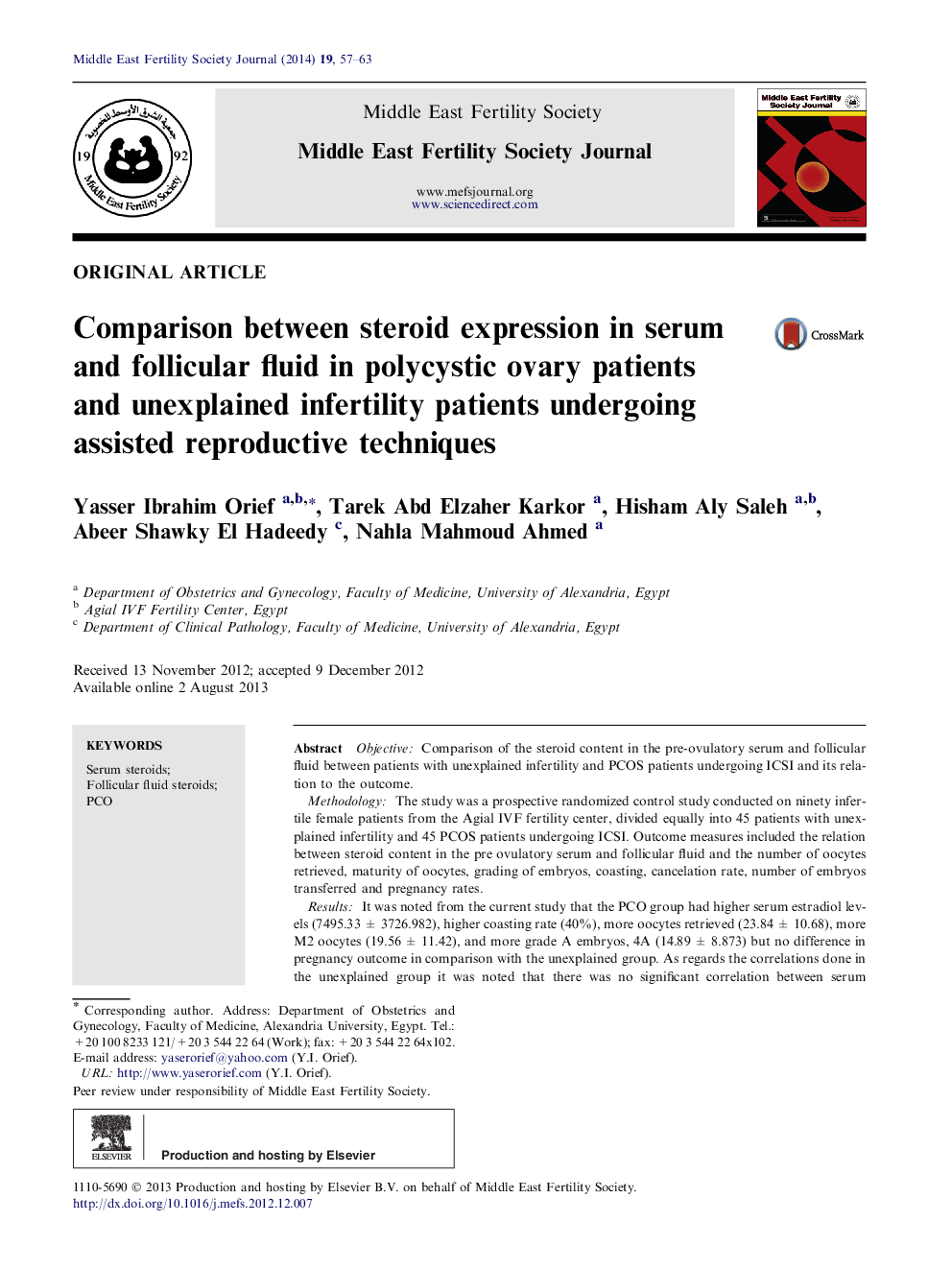| Article ID | Journal | Published Year | Pages | File Type |
|---|---|---|---|---|
| 3966161 | Middle East Fertility Society Journal | 2014 | 7 Pages |
ObjectiveComparison of the steroid content in the pre-ovulatory serum and follicular fluid between patients with unexplained infertility and PCOS patients undergoing ICSI and its relation to the outcome.MethodologyThe study was a prospective randomized control study conducted on ninety infertile female patients from the Agial IVF fertility center, divided equally into 45 patients with unexplained infertility and 45 PCOS patients undergoing ICSI. Outcome measures included the relation between steroid content in the pre ovulatory serum and follicular fluid and the number of oocytes retrieved, maturity of oocytes, grading of embryos, coasting, cancelation rate, number of embryos transferred and pregnancy rates.ResultsIt was noted from the current study that the PCO group had higher serum estradiol levels (7495.33 ± 3726.982), higher coasting rate (40%), more oocytes retrieved (23.84 ± 10.68), more M2 oocytes (19.56 ± 11.42), and more grade A embryos, 4A (14.89 ± 8.873) but no difference in pregnancy outcome in comparison with the unexplained group. As regards the correlations done in the unexplained group it was noted that there was no significant correlation between serum progesterone, follicular fluid steroids and all parameters including pregnancy outcome. As regards the correlations done in the PCOS group, there was a positive correlation between serum estradiol (P = .001), serum progesterone (P = .002) and class 4A embryos. There was no significant correlation between follicular fluid steroids and all other parameters including pregnancy outcome.ConclusionFrom the current study the pre ovulatory serum steroids as well as the follicular fluid steroids could not be used as an accurate marker for predicting the outcome of ICSI in both groups.
